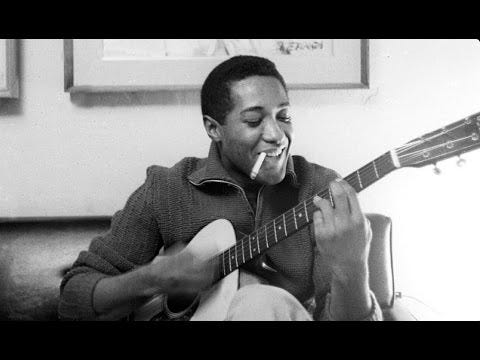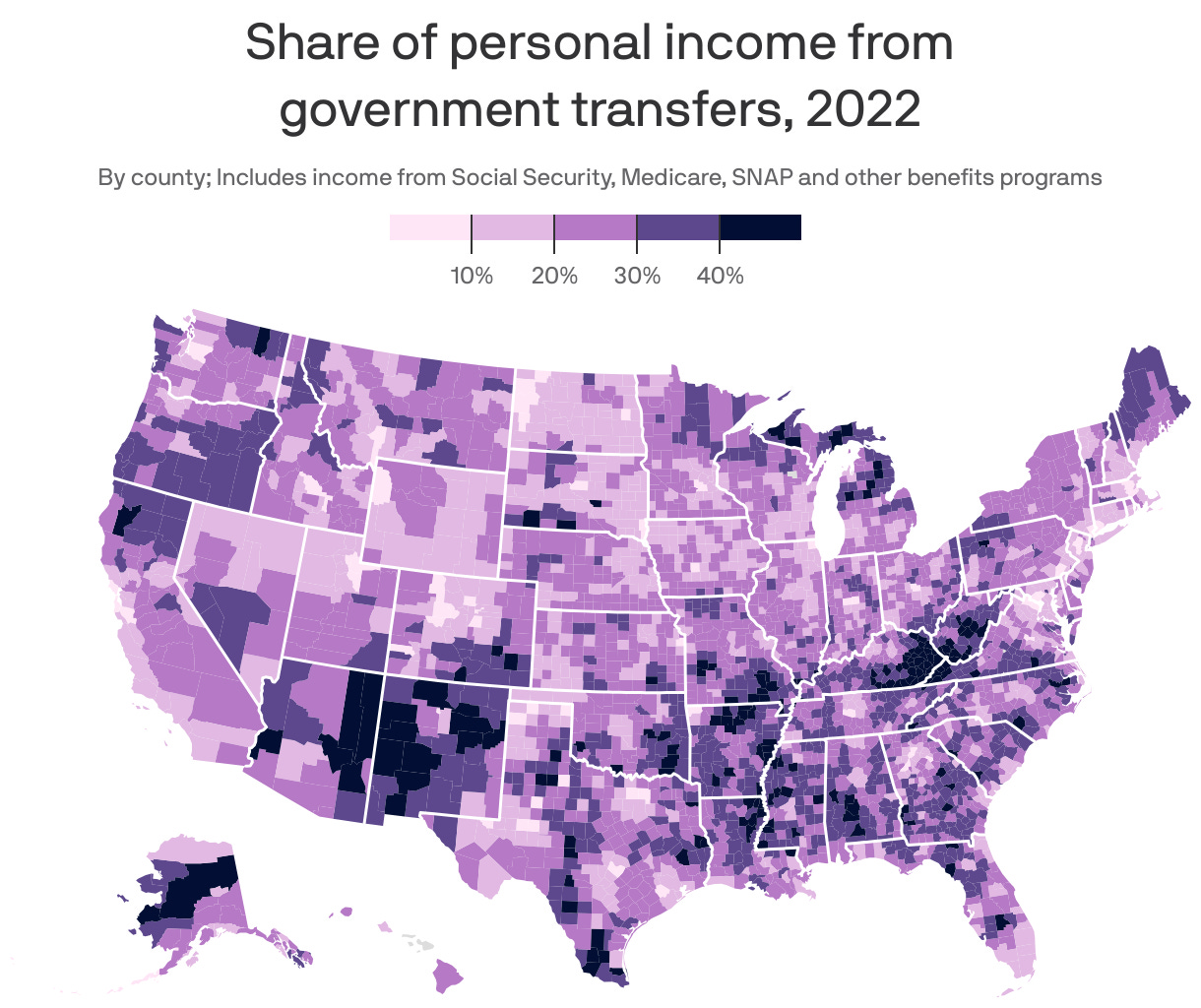I thought this week I’d give my readers a history quiz using a classic rock song by Sam Cooke.
If you got an A in history class as a kid, the faces in this video are a bitter sweet walk down the memory lane of your textbook. As you can see the video features 23 famous people from politics and science. How many can you identify? (Full disclosure—I missed a few. Who is the guy standing next to Einstein?) The song is more than a video version of Trivial Pursuit. It’s a statement of how keenly we have observed the world around us. It’s how we’ve internalized the historical record to explain where we came from.
If you can identify everyone, go to the head of the class and call Mensa. The rest of us may miss more than a few. Was that the Shah of Iran who flitted by? Who was the Shah of Iran in the first place? Did he have something to do with the rise of the Ayatollahs? And does that have something to do with the genocidal war in the Middle East? And what about Albert Einstein? Didn’t he have something to do with the atomic bomb? My guess is that the score for both college graduates and high school grads will be low because I bet as the song goes, “Don’t know much about history…”
One study I’d like to show the Don’t-Know-Much-About-History video to voters and see if education levels make a difference in scores. (My hypothesis is that every group will do poorly, high school grads understandably scoring less than those with more education, but not by much.) The Associated Press has already done the hard part and broken down voters, and who they voted for, into four educational groups: those with a high school degree or less, some college, a college degree, and those with a postsecondary degree. Here’s the AP’s data:
If you combine the first two less educational categories for each candidate, the difference between the percentages is staring you in the face. Donald Trump won by appealing to less educated voters with of 61% of all voters, compared to Harris’s 48%, and less educated voters were the majority group among all voters. These voters didn’t care about what Barack Obama had to say or about “joyful” Democrats. They liked Hulk Hogan. When the soul of democracy depends on the fans of a fake wrestler, we’re in big trouble.
In 2012, four years before Trump’s first presidency, Supreme Court Justice David Souter prophetically said, “I don’t worry about our losing republican government in the United States because I’m afraid of a foreign invasion. I don’t worry about it because I think there is going to be a coup by the military, as has happened in some other places. What I worry about is that when problems are not addressed, people will not know who is responsible. And when the problems get bad enough, as they might do, for example, with another serious terrorist attack, as they might do with another financial meltdown, some one person will come forward and say, ‘Give me total power, and I will solve this problem.’”
Souter gets high marks for prescience. We’re always smarter looking in the rearview mirror, so it should not be a surprise to realize how cleverly Trump, the prototypical anti-intellectual, turned voters against the so-called elites and to strongman politics. The question arises: who will benefit now and who will pay? If you analyze where Federal dollars go to people in the form of Social Security, Medicare and other other benefits, you see that today they go disproportionately to the regions of the country that supported Donald Trump the most, the southeast and the west:
This will change for the worse for the beneficiaries of these programs. The Republicans have tried to cut many in the past, and are more likely than ever to try again. Needless to say with a trifecta in the federal government with Republicans controlling both houses of Congress and the presidency the champagne is surely flowing at the Heritage Foundation and in boardrooms across America. The cuts to federal entitlement programs is inevitable, along with continued tax cuts for the wealthy. So desperate were Trump’s supporters for change that they voted against their own self interest.
The metaphor of an electorate drunk from the boozy promise of change is reminiscent of Winston Churchill who was overly fond of scotch whiskey. At one gathering a dowager reproached him, “Prime Minister, I believe you are drunk. In fact, I believe you are the drunkest man I’ve ever seen.” Churchill looked closely at his accuser and said, “My good woman. You are ugly. In fact, I believe you are the ugliest woman I’ve ever seen. And,” he added, “I’ll be sober in the morning.” One may reasonably hope that tomorrow morning Trump’s supporters, like Churchill, will wake up sober, albeit it with one of history’s biggest hangovers. One can easily blame Trump voters alone for the terrible turn the country has taken, but that would be as unfair as it is simplistic. The media share the blame, as well. So do the Democrats and feckless educational institutions for not doing a better job in combating the Republican campaign of lies.
The central question of our country is clear. Can we keep one of history’s great experiments in self-governance, or will it slip through our fingers? The pundits are not sanguine about our prognosis. In a pithy op-ed Jennifer Rubin writes in the Washington Post, “When a country deliberately rejects decency, truth, democratic values and good governance, the problem is not a candidate, a party, the media or a feckless attorney general. Democracy is not self-sustaining. It requires a virtuous people devoted to democratic ideals.” Rubin is not sure we can be so virtuous. Rosa Brooks and colleagues in the Democracy Futures Project predict a number of outcomes of a Trump presidency. Their take is equally grim. Democracy could die not with a bang but a whimper, as the press and universities are suppressed, and corrupt cronies offer loyalty to the strongman in return for federal contracts. The rule of law could easily be subverted by Trump and a compliant justice system used to keep critics in line and attack his perceived enemies with bogus charges, IRS audits, and frivolous lawsuits. It’s a grim paradox that such efforts are likely to grind forward only slowly, if at all, because he is filling his cabinet with spectacularly incompetent and unqualified individuals.
But if our democracy appears headed for the ICU and life supports, its condition is not terminal. The remedy needed is no mystery. The press must remain independent, free, and courageous in the face of efforts to intimidate, bias, or crush it. Religion, as beneficial as it may be, must be kept separate from governance. The widening gulf between the rich and the rest of us needs to be narrowed. People need a chance to have decent jobs, buy a home, and get ahead. And most importantly, we need to address the epidemic problem of what Justice Souter called “civic ignorance.” We are past preventing such an epidemic, but like the vaccine for Covid-19, education reduce the contagion of conspiracy theories and misinformation. Don’t know much about history? It’s time we did.
If you approve of this piece, please share it with others.





I agree - superb introductory video and observations. Educational (and entertaining) for me!
Hi Henry. Superb piece, and my sentiments exactly. If that's David Ben Gurion next to Einstein, I think I got them all. No claim to Mensa, though.
Best,
John Pastore